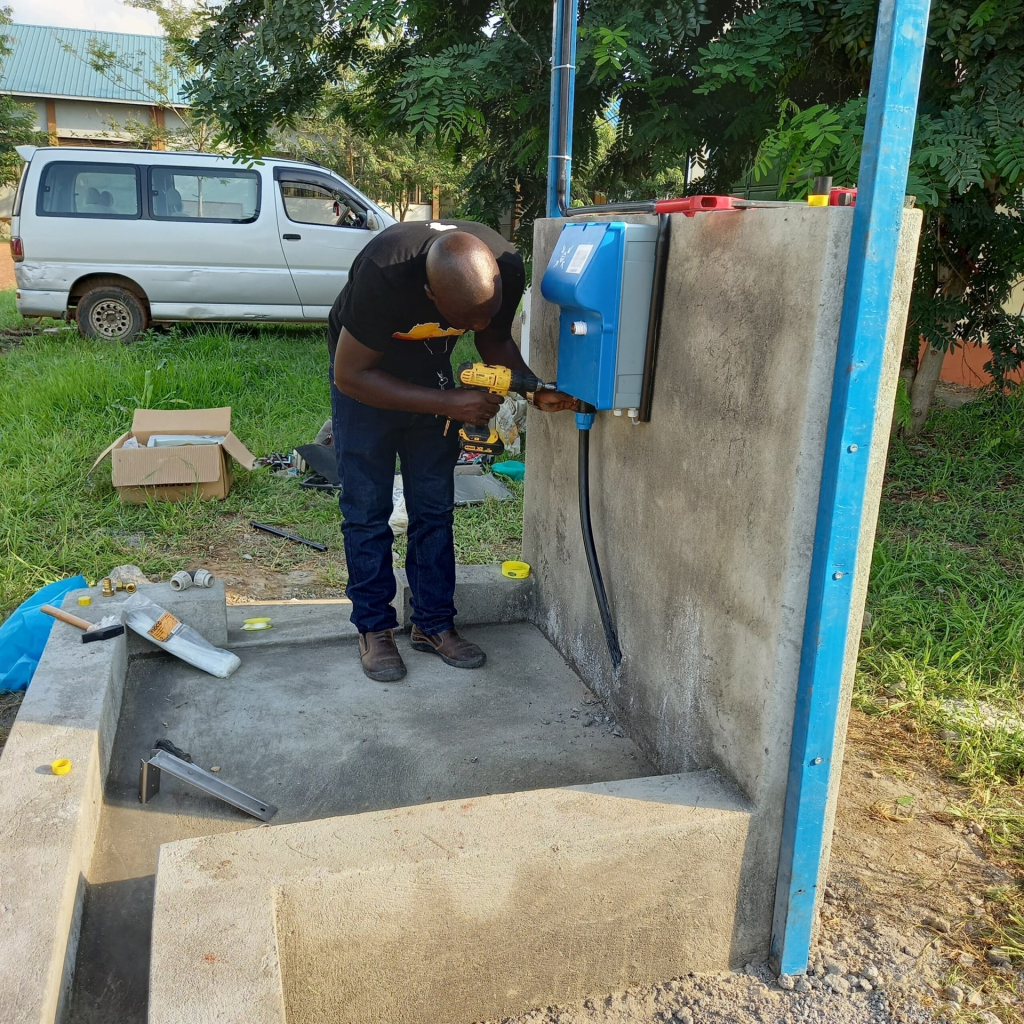Aptech Africa’s South Sudanese subsidiary recently installed 106 Lorentz SmartTAP water distribution units in several communities in South Sudan. The project is implemented by Oxfam South Sudan, with technical support from the German International Cooperation Agency (GIZ). SmartTAP Lorentz is a prepaid water dispenser that uses near-field communication (NFC) technology. This short-range, high-frequency wireless technology enables the exchange of information between the water dispenser and a device connected to a cell phone.
The sites of Juba, Torit, Yambio and Yei were chosen primarily because they already have active water supply systems. The initial phase of installation of these Lorentz SmartTAP dispensers will benefit approximately 54,000 people at a rate of 6 people per household or one tag per household.
The water dispensers operate completely offline with an option to collect data using the Bluetooth connection. The data can be uploaded to the customer account at any location with an internet connection. The dispenser tracks the amount of water collected by each individual per day with data storage for up to 5 years. The promoters of this project explain that thanks to this innovation, water supply systems are now able to significantly reduce revenue losses as well as losses due to water wastage.
Read also-SOUTH SUDAN: AfDB Approves $24 Million for Water and Sanitation Project
ApTech’s project joins other initiatives aimed at strengthening water supply to improve the living conditions of people in this East African country. These include the African Development Bank (AfDB) Water Support Program launched in 2020. Funded at $8 million, the project has brought clean water to 230,000 people in poor neighborhoods in Juba, a city of 372,000 people. Other government partners are also investing in other sites such as Hai Gabat, MTC, Konyo, Kasaba, Lologo, Atlabara, Muniki, and parts of Gudele/Guei. These initiatives, according to experts, help to eliminate diseases caused by the consumption of water drawn directly from the Nile.
Benoit-Ivan Wansi
